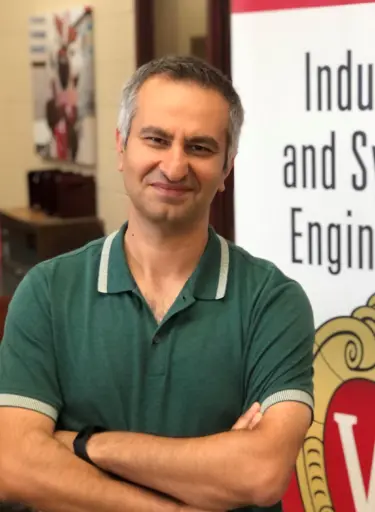Current healthcare guidelines focus on management of one disease and ignore some patients’ underlying, chronic conditions. New research in the journal Management Science finds that if personalized disease screening recommendations are made for these patients, it will save lives and money for the healthcare system.
 Oguzhan Alagoz
Oguzhan Alagoz
“We find that the consideration of chronic conditions in developing screening guidelines significantly alters disease screening recommendations, and therefore reduces the misuse of limited screening resources,” says Oguzhan Alagoz, a professor of industrial and systems engineering at the University of Wisconsin-Madison.
The study, conducted by Alagoz alongside Ali Hajjar of Harvard Medical School, considers the optimal management of disease screening (such as cancer or HIV) while accounting for a chronic condition (for example, hypertension or diabetes) and found the value of personalized policies is much higher for people who are at risk of developing chronic conditions compared to people who do not have any chronic conditions.
In a case study using real breast cancer epidemiology data, the researchers demonstrate how their findings can be used to personalize breast cancer screening for women with Type 2 diabetes. In addition to providing a personalized breast cancer screening schedule for women with diabetes, the researchers found important policy insights that were not previously recognized by the medical community.
“We found that compared to nondiabetic women, women with diabetes should be screened less aggressively, but screening should end at similar ages,” says Alagoz. “Also, the adherence to the recommended screenings is more crucial for women with diabetes compared to nondiabetic women. Such personalized breast cancer screening policies for women with chronic conditions have major resource implications as well because using them could save up to 2.6 million mammograms annually in the U.S. alone.”
In his research, Alagoz applies mathematical modeling to inform healthcare policies, such as disease screening guidelines for different populations and potential overdiagnosis of thyroid cancer. He’s also used modeling to project infectious disease spread, including sharing COVID-19 case projections with local officials in the early stages of the pandemic.
Oguzhan Alagoz is the Proctor and Gamble Bascom Professor in the Department of Industrial and Systems Engineering.
A version of this story was originally published by the Institute for Operations Research and the Management Sciences (INFORMS).